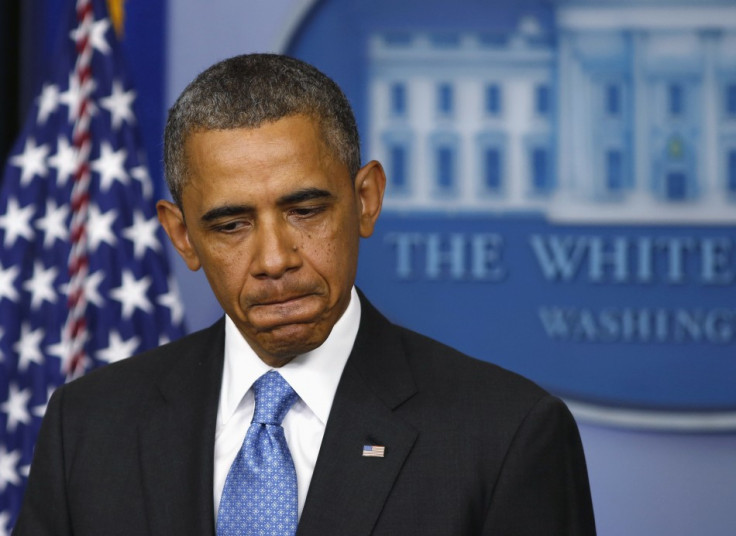Obama: Trayvon Martin 'Could Have Been Me 35 Years Ago'

US President Barack Obama has intervened amid continuing tensions across America following the acquittal of the suspect in the killing of the black teenager Trayvon Martin.
Riots flared across the United States after neighbourhood watchman George Zimmerman was cleared of murdering Martin, after shooting him dead in February 2012.
Obama has held back from entering the debate over Martin since releasing a statement in March last year, in which he said: "If I had a son, he'd look like Trayvon."
Trayvon Martin was shot dead by George Zimmerman on the night of 26 February 2012, in Florida. Martin,17, was unarmed.
Addressing the question of race directly, Obama said: "When you think about why, in the African-American community at least, there's a lot of pain around what happened here, I think it's important to recognise that the African-American community is looking at this issue through a set of experiences and a history that doesn't go away.
"There are very few African-American men in this country who haven't had the experience of being followed when they were shopping in a department store. That includes me.
"There are very few African-American men who haven't had the experience of walking across the street and hearing the locks click on the doors of cars. That happened to me - at least before I was a senator.
"There are very few African-Americans who haven't had the experience of getting on an elevator and a woman clutching her purse nervously and holding her breath until she had a chance to get off. That happens often.
"And I don't want to exaggerate this, but those sets of experiences inform how the African-American community interprets what happened one night in Florida. And it's inescapable for people to bring those experiences to bear."
Obama added: "That could have been me".
Further protests are planned for Saturday 20 July in 100 US cities.
The Not Guilty verdict caused deep anger, with thousands rallying in cities across the US. Zimmerman was acquitted on laws that permit self-defence in dangerous situations, known as the "stand your ground" laws.
The Rev Jesse Jackson said: "The stand-your-ground law lends itself to massive interpretations because it is so subjective. It is an incentive to shoot rather than a deterrent. We are free, but not equal."
Martin's parents said they were "deeply honoured and moved" by Obama's remarks, and recognised the case had become "a conduit for people to talk about race in America".
"We know that the death of our son Trayvon, the trial and the not guilty verdict have been deeply painful and difficult for many people," Sybrina Fulton and Tracy Martin said.
"What touches people is that our son, Trayvon Benjamin Martin, could have been their son. President Obama sees himself in Trayvon and identifies with him. This is a beautiful tribute to our boy."
Hundreds of thousands of human rights campaigners are expected to congregate in Washington next month for the 50th anniversary of Martin Luther King's "I have a dream" speech. Obama will play a central role in the events.
In his speech yesterday, the president said: "The outcome ... might have been different" had it been "a white male teen" involved in the incident.
"I think it's understandable that there have been demonstrations and vigils and protests, and some of that stuff is just going to have to work its way through.
"If I see any violence, then I will remind folks that that dishonours what happened to Trayvon Martin and his family. Do we actually think that he would have been justified in shooting Mr Zimmerman who had followed him in a car because he felt threatened?
"If the answer to that question is at least ambiguous, then it seems to me that we might want to examine those kinds of laws. It doesn't mean we're in a post-racial society. It doesn't mean that racism is eliminated.
"Trayvon Martin could have been me 35 years ago."
© Copyright IBTimes 2025. All rights reserved.




















